I’ve read of the recent sad journalism at the New York Post accusing Joe Biden of corruption. Several Post reporters refused to put their name on the article because they doubted the sources’ authenticity. Finally, they found someone to author it, a young woman who has published no previous articles with the Post, but had worked for the Sean Hannity Show for four years.
The “proof” in the article was a laptop that was supposedly left at a Delaware computer-repair shop, and then handed over by the owner to Rudy Giuliani. Remember that American intelligence has revealed that Giuliani has recently met twice with Andriy Derkach, whom Trump’s own Treasury Department has sanctioned for acting as a Russian agent and interfering in the 2020 election.
Also curious is that a computer-store owner would contact a Republican operative and hand over someone else’s property. If you owned a computer store, would you look through the contents of a customer’s computer? Would you contact a partisan hack whom American intelligence has accused of consorting with Russian spies? If so, I’m not going to bring my computer to your store, because you have absolutely no sense of boundaries.
This story in the Post has led other right-wing media to claim that the laptop’s hard drive contained 25,000 images of Hunter Biden “torturing and raping children under age 10 in China….” Politifact has solidly refuted this claim, but the rumors have spread across right-wing media like a plague.
Looking at the outlines of this story, American intelligence officials have been alarmed, and 50 of them have signed a letter claiming that the story “has all the classic earmarks of a Russian information operation.” It just reeks of right-wing fantasy, of which there are so many these days.
So why would the New York Post publish crap like this?
Well, I have more perspective on this question than many others. In 1999, I had an encounter with the Post that told me everything I need to know about them.
Twenty-one years ago, I had just published my first book, Be a Street Magician: A How-To Guide (Aha! Press, 1998). I was excited to promote the hell out of it, and I did. I spent nine months on the road promoting the book, lecturing to magic clubs, appearing at bookstores, being interviewed on television and radio, and the like. It was a blast.
That summer, I rented a flat in New York for a full month, and immediately spotted a great opportunity to promote the book: the New York print media. After all, New York City has arguably the best street performing in the world. There’s Washington Square Park, the Theatre District, South Street Seaport, and the like, all venues filled with talented young people pulling in massive audiences. The density of the New York population results in lots of cash dropped into those buskers’ hats.

The pitch would be simple. The author of Be a Street Magician was making a monthlong stay in the best street-performing city in the world! He would comment on all the great busking talent that residents could see in the city for free.
I pitched the Times and the Daily News, but they both turned me down. But when I pitched the Post, I got a nibble.
“I think my boss is up for the story,” an editor told me over the phone. “But to do this kind of story, we’d have to tie it to a celebrity, somebody you could get a quote from about street performing. Could you do that?”
“Sure,” I said.
I was thinking of a couple of celebrities whom I had bumped into in 1983. I had been visiting New York and staying with my friend Jon, sleeping on a mattress on his kitchen floor. One Saturday, we were strolling along Broadway when we came across two buskers playing a street festival. One was a portly juggler, and the other was a short, quiet magician. They called themselves Penn & Teller.

Sixteen years later, Penn & Teller had become television stars, with famous appearances on “David Letterman,” “Hollywood Squares,” and many other shows, although they hadn’t yet clinched their regular gig in Vegas at the Rio Hotel & Casino. So I called around and located Penn & Teller’s manager. I told him what I wanted, and he said he’d try to get back to me with a quote. Within 24 hours, he had. He gave me the most fabulous quote about busking that I could imagine. It went something like this.
“If you can perform in the middle of the street, with crowds who are on their way to somewhere else, in 100-degree heat or pouring rain, and stop those people, make them watch you, make them fascinated even in spite of crying kids, smart-aleck teenagers, and dozens of other unforeseen obstacles, then you might have what it takes to perform on the street.”
I was happy. I had my quote. I had my article.
I called my editor, dictated the quote to him, and waited for the call from a reporter.

Instead, a day later, I got a call from the editor.
“I’m really sorry,” he said. “My editor said no.”
“Why?”
“I’m sorry, but this newspaper is really dead-set against liberals. And Penn Gillette is a major Democratic party guy. My editor said he wouldn’t ever publish anything that mentioned the guy.”
I hung up the phone and scratched my head. It was weird to be asked for a quote from a celebrity, any celebrity, and then rejected because they didn’t like who the quote was from. Even more curiously, I’ve since discovered that Penn isn’t a raging liberal, after all, but instead, a libertarian, or in his own words, “an anarcho-capitalist.” And most curiously of all, I didn’t understand why my article about busking would be rejected because of the politics of someone commenting in my article. Busking has nothing to do with liberal or conservative politics. It’s just talented people doing magic in a park or street corner. (Pittsburgh Tribune-Review, May 24, 2003)
The article never happened. But in the intervening years, I’ve begun to question everything that the New York Post publishes. They seem rabid and uberpartisan. I don’t trust a thing they publish.


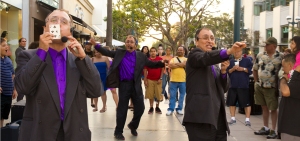


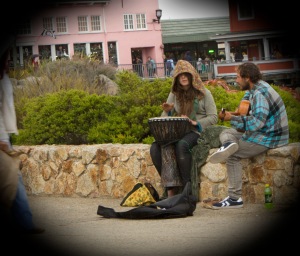
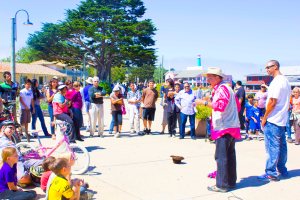
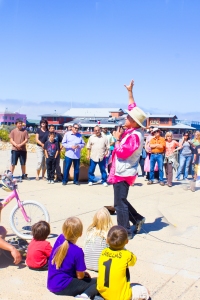
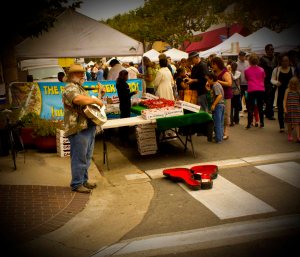
You must be logged in to post a comment.